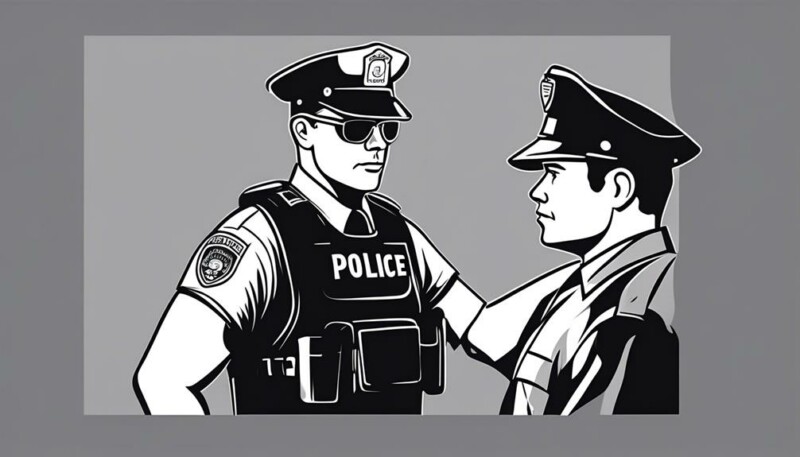When it comes to firearm safety, the impact of concealed carry laws is a subject of ongoing debate and research. These laws, often referred to as 'shall-issue' laws, have been implemented in various states across the country. While some studies suggest that these laws may have unintended consequences such as an increase in firearm homicides and violent crime, others have found conflicting results.
The effects of concealed carry laws at different levels, from county to state to city, are also inconclusive. To fully understand the impacts of these laws on firearm safety, it is crucial to consider factors such as eligibility, restrictions, training requirements, and the specific provisions of each state's laws.
So, what does the research say about the influence of concealed carry laws on firearm safety? Let's explore the various aspects and implications of these laws to gain a comprehensive understanding.
Key Takeaways
- Concealed carry laws, particularly those with fewer requirements and restrictions, may lead to an increase in firearm accidents and homicides.
- Implementing stricter requirements for obtaining concealed carry permits can help reduce gun assaults and homicides.
- The influence of concealed carry laws on criminal activity and crime rates is complex and requires further examination.
- Public perception of safety is influenced by the impact of relaxed concealed carry laws on firearm homicides and assaults, highlighting the importance of proper safety training requirements.
Impact on Firearm Accidents
Concealed carry laws have been found to have an impact on firearm accidents, with studies suggesting a potential correlation between the relaxation of restrictions and an increase in such incidents. According to research, states that have implemented concealed carry laws with fewer requirements and restrictions have seen a rise in firearm accidents. This correlation raises concerns about the overall impact of these laws on firearm safety.
One study conducted by Crifasi et al. (2018b) found that shall-issue concealed carry laws may increase firearm homicides. Additionally, states that have relaxed restrictions on concealed carry experienced an average increase of 8.8% in homicides without firearms. These findings suggest that the ease of obtaining a concealed carry permit may contribute to an increase in firearm accidents and deaths.
To address this issue, experts recommend implementing stricter requirements for obtaining concealed carry permits. Requiring live firearm training has been identified as an important step in reducing gun assaults. An analysis focused on the impact of shall-issue laws found that including training requirements can help mitigate the expected increase in gun assault rates.
Influence on Criminal Activity
When examining the influence of concealed carry laws on criminal activity, it's important to consider the impact on crime rates and the effectiveness of deterrence.
Some studies have suggested that shall-issue concealed-carry laws may lead to an increase in total and firearm homicides.
On the other hand, other research, such as the study by Lott and Mustard (1997), found significant decreases in rates of violent crime, murder, rape, and assault in states that implemented such laws.
It's crucial to analyze these differing perspectives and thoroughly examine the data and methodology to gain a clearer understanding of the true influence of concealed carry laws on criminal activity.
Crime Rates Impact
The impact of crime rates on criminal activity is a crucial aspect to consider when examining the effects of concealed carry laws. Research has shown that the implementation of shall-issue concealed carry laws may increase total and firearm homicides, as well as violent crime. However, the effects of permitless-carry laws on total homicides remain uncertain.
According to a study conducted by Lott and Mustard in 1997, states implementing shall-issue laws experienced significant decreases in rates of violent crime, murder, rape, and assault. However, concealed carry laws at both state and city levels have shown mixed results in their impact on crime rates.
It's important to note that statistical modeling and analysis are used to understand the relationship between concealed carry laws and crime rates. Law enforcement and public safety officials play a critical role in ensuring compliance with firearms permit requirements to mitigate gun violence and uphold firearm safety.
Deterrence Effectiveness Analysis
Considering the mixed results on the impact of concealed carry laws on crime rates, it's important to analyze the deterrence effectiveness of these laws in influencing criminal activity.
Various studies have shown conflicting findings regarding the influence of concealed carry laws on violent crime. While some studies indicate a decrease in crime rates, others find no significant effects. Expert opinions also differ, with some suggesting uncertain effects on crime rates, including intimate partner homicides and firearm-related homicides.
Research findings suggest an increase in firearm homicide rates and firearm assaults in states that have relaxed concealed carry restrictions.
Given the ongoing changes in concealed carry laws and permit requirements, particularly following the recent Supreme Court decision on New York's permit requirements, it's crucial to further study the impacts of these laws.
Additionally, it's recommended to consider objective criteria for issuing concealed carry licenses and the importance of live-firearm training provisions for ensuring public safety.
Effect on Public Safety Perception

When it comes to concealed carry laws, public perception of safety is a crucial factor to consider.
The impact on crime rates can vary, with studies showing mixed results.
This uncertainty can affect community trust and confidence in these laws, as individuals may question their effectiveness in ensuring public safety.
Public Perception of Safety
Public perception of safety is significantly influenced by the impact of relaxed concealed carry laws on firearm homicides and assaults. The availability of concealed carry permits may lead to an increase in gun homicides, which can affect public perception of safety.
Concerns are raised when concealed carry laws are loosened without requiring proper safety training for gun owners. The lack of live-firearm training requirements raises questions about the potential risks to public safety perception.
However, studies have found that specific provisions in shall-issue laws, such as mandatory live-firearm training and screening, can help mitigate the risks associated with civilian gun carrying.
It's important to note that recent revisions in state concealed carry laws, influenced by the Supreme Court's Bruen decision, may contribute to shifts in public perception of safety regarding the carrying of deadly weapons in public.
Impact on Crime Rates
The impact of concealed carry laws on crime rates can influence public perception of safety. It's important to consider the effect that these laws have on crime rates in order to understand their impact on public safety. Research has shown that states implementing shall-issue concealed carry laws may experience an increase in total and firearm homicides, which can negatively impact public safety perception.
On the other hand, some studies suggest that the implementation of these laws may lead to significant decreases in rates of violent crime, murder, rape, and assault, potentially shaping a positive perception of safety. Expert opinions on the effects of concealed carry laws are mixed, with some studies suggesting an increase in firearm-related homicide rates, while others highlight the potential benefits of specific provisions such as live-firearm training requirements.
It's crucial to consider all of these factors when evaluating the impact of concealed carry laws on crime rates and public safety perception.
Community Trust and Confidence
Community trust and confidence in concealed carry laws can be influenced by their perceived impact on public safety. The effect of these laws on public safety perception is not definitive, as studies have yielded mixed results. Some studies suggest a decrease in violent crime rates, while others find no significant effects. Similarly, expert opinions on permitless-carry laws vary, with some studies suggesting uncertain effects on crime rates and others indicating a potential increase in firearm-related homicides. To provide a visual representation of the complexities surrounding these laws, consider the following table:
| Concealed Carry Laws | Impact on Public Safety Perception |
|---|---|
| Shall-issue laws | Mixed results |
| Permitless-carry laws | Varied effects |
| State requirements | Holster use, restricted areas |
| Training requirements | Potential reduction in gun assaults |
It is important to note that changes in concealed carry laws and permit requirements have prompted revisions and reviews in several states. The landscape of gun-carrying laws has also been influenced by U.S. Supreme Court decisions. These ongoing discussions aim to balance the need for firearm safety with individual rights, considering statistical modeling and public health implications.
Relationship With Law Enforcement

Collaboration between law enforcement and concealed carry permit holders can greatly enhance firearm safety and responsible gun ownership. The relationship between law enforcement and individuals with concealed carry permits is crucial in ensuring compliance with state laws and regulations. Here are some key points to consider:
- Enforcing concealed carry laws: Law enforcement plays a vital role in enforcing concealed carry laws and ensuring that permit holders adhere to the necessary regulations. This helps maintain public safety and prevents unauthorized individuals from carrying firearms.
- Differentiating legal and illegal possession: In states with varying concealed carry laws, law enforcement may encounter challenges in differentiating between legal and illegal firearm possession. This highlights the importance of proper training and education for law enforcement to accurately identify legal permit holders.
- Training and education: Providing law enforcement with comprehensive training on concealed carry laws and the permitting process can improve their interactions with armed individuals. This knowledge helps them understand the restrictions and responsibilities that come with carrying a firearm.
- Effective communication: Effective communication between law enforcement and concealed carry permit holders is essential for public safety. Building mutual understanding and trust can contribute to crime prevention and prompt reporting of suspicious activities.
- Enhancing public safety: A strong relationship between law enforcement and concealed carry permit holders can enhance public safety by ensuring responsible gun ownership and reducing the risk of firearm-related incidents.
Implications for Mental Health Screening
As we move into the implications for mental health screening, it's important to consider how this aspect can further enhance firearm safety and responsible gun ownership for individuals with concealed carry permits. Mental health screening plays a crucial role in identifying individuals who may pose a risk to themselves or others when carrying firearms. By implementing mental health screening as part of concealed carry laws, states can prevent individuals with severe mental health issues from obtaining permits.
The inclusion of mental health screening in concealed carry laws has the potential to contribute to reducing the risk of firearm-related violence. By ensuring that individuals with mental health concerns aren't granted concealed carry permits, the likelihood of gun violence can be decreased. This is particularly important as statistical modeling has shown a correlation between mental illness and increased risk of violence.
To effectively assess applicants for permits, the process of mental health screening may require collaboration between law enforcement, mental health professionals, and regulatory authorities. This collaborative effort is crucial to ensure a comprehensive evaluation of an individual's mental health status. By incorporating mental health screening into permit requirements, states can address concerns about the potential harm of firearms in the hands of individuals with mental health issues.
Role in Domestic Violence Incidents

Concealed carry laws have been found to have varying effects on domestic violence incidents, with some studies suggesting an increase in intimate partner homicides. The role of concealed carry laws in domestic violence incidents is a complex and controversial issue. Here are some important points to consider:
- Some studies suggest that shall-issue concealed-carry laws may increase intimate partner total homicides. This raises concerns about the potential dangers of allowing individuals to carry concealed firearms, especially in situations involving domestic violence.
- Uncertain effects of concealed-carry bans on overall or firearm-related intimate partner homicides have been found in research. While some studies indicate a potential increase in homicides, others have found no significant impact.
- Certain studies have found suggestive effects that shall-issue laws increased firearm and total homicide rates. This highlights the need for further research to fully understand the relationship between concealed carry laws and domestic violence incidents.
- Research has shown that shall-issue laws with specific provisions can reduce risks associated with civilian gun carrying. Implementing comprehensive background checks and training requirements can help ensure that only responsible individuals have access to concealed carry permits.
- Several well-regarded studies indicate that access to concealed carry permits may increase firearm homicides. This underscores the importance of carefully considering the potential consequences of concealed carry laws on domestic violence incidents.
It is crucial to approach this topic with an open mind and strive for a balanced understanding of the role concealed carry laws play in domestic violence incidents. Further research and evidence-based policies are necessary to address the complex dynamics between firearm safety, domestic violence, and concealed carry laws.
Considerations for Training Requirements
Considering the potential impact of training requirements is a crucial aspect when examining the role of concealed carry laws in domestic violence incidents. Requiring live firearm training is an important step in reducing gun assaults. States with shall-issue laws and live-firearm safety training requirements didn't see significant increases in firearm assaults. This suggests that training requirements play a role in maintaining firearm safety among concealed carry permit holders.
When it comes to training requirements, state laws vary. Some states have proper cause requirements, which means that individuals must demonstrate a valid reason for carrying a concealed weapon. Other states have shall-issue laws, which means that permits must be issued as long as the applicant meets certain criteria, such as passing a background check and completing a training course.
Statistical modeling has been used to analyze the impact of different provisions in shall-issue laws. The findings suggest that specific provisions can reduce the risks associated with civilian gun carrying. For example, states that have objective criteria for issuing concealed carry licenses, including live firearm training, are more likely to have lower rates of firearm assaults.
It is important for states to carefully consider their training requirements when implementing concealed carry laws. By ensuring that individuals receive proper training, states can promote firearm safety and potentially reduce the risk of gun violence.
Frequently Asked Questions
What Are the Negative Effects of Concealed Carry?
The negative effects of concealed carry include:
- Public perception concerns
- Accidental incidents
- The need for thorough risk assessment
Training requirements and mental health evaluations are important to ensure responsible gun ownership.
Law enforcement has concerns about:
- The potential impact on crime rates
- The challenges of concealed carry reciprocity
There's also the potential for:
- Misuse
- Strain on personal relationships
It's important to consider these factors when discussing the negative effects of concealed carry.
Do Concealed Carry Guns Have Safety?
Yes, concealed carry guns can have safety measures in place.
Proper concealed carry training can teach you how to safely handle and store your firearm. It also covers important topics like holster selection, trigger discipline, and risk assessment.
Mental health and responsible gun ownership are also emphasized, promoting a responsible and safe approach to carrying a concealed weapon.
Understanding self-defense laws and receiving firearms education further enhance your ability to use your firearm responsibly and safely for defensive purposes.
Does Carrying a Concealed Handgun Increase the Chances of Confrontation Becoming Lethal?
Carrying a concealed handgun can increase the chances of a confrontation becoming lethal. The effectiveness of self-defense, psychological impact, and training requirements play a role in this.
From a law enforcement perspective, the impact on public safety is a significant concern. The risk of accidental discharge and the potential increase in crime rates are also factors to consider. Additionally, concealed carry reciprocity and carrying in public places can further complicate the issue.
It's crucial to address the potential connection between concealed carry and domestic violence as well.
Why Are Gun Safety Laws Important?
Gun safety laws are important for several reasons. They aim to prevent gun accidents and ensure public safety. These laws promote responsible ownership by setting training requirements and regulating access to firearms.
They also implement prevention measures to reduce gun violence. Additionally, gun safety laws focus on community awareness and education programs to educate individuals on the proper handling and storage of firearms.
Enforcement measures are put in place to ensure compliance with these laws, ultimately creating a safer society for everyone.
Conclusion
In conclusion, the impact of concealed carry laws on firearm safety is complex and inconclusive. While some studies suggest an increase in homicides and violent crime, others show mixed results or even a decrease in crime rates.
It's important to consider eligibility and restrictions for carrying firearms, as well as implementing objective criteria and training requirements. Further research is necessary to fully understand the effects of these laws.
Like a puzzle missing a few pieces, the true impact of concealed carry laws on firearm safety remains to be fully understood.
